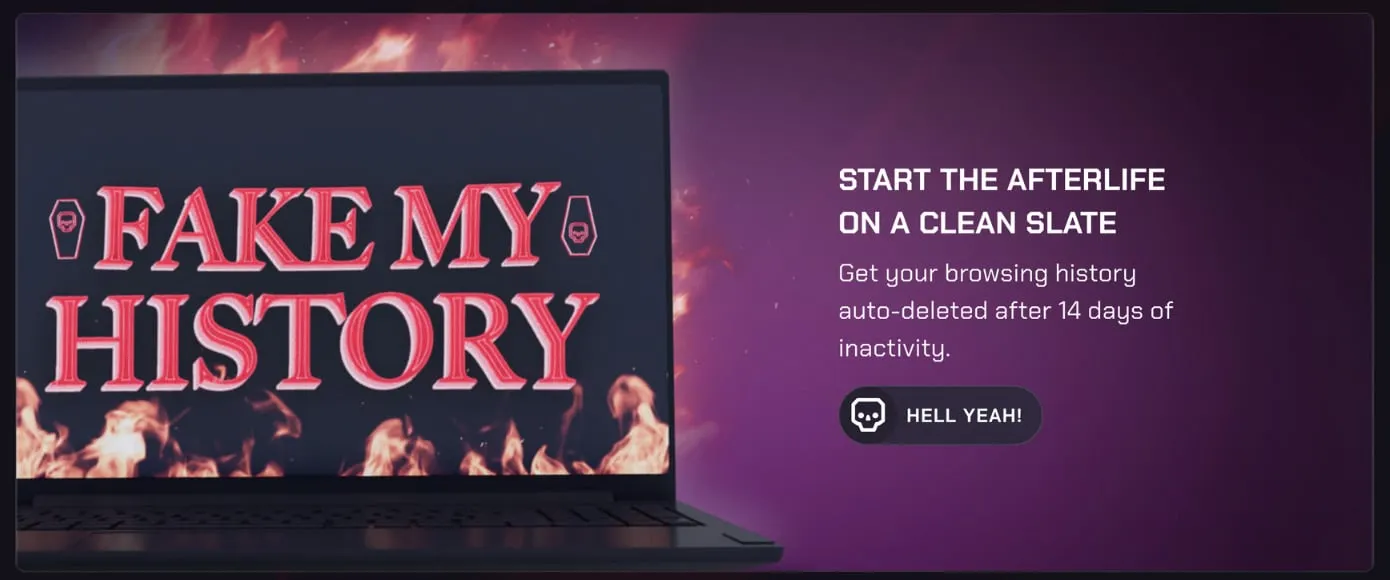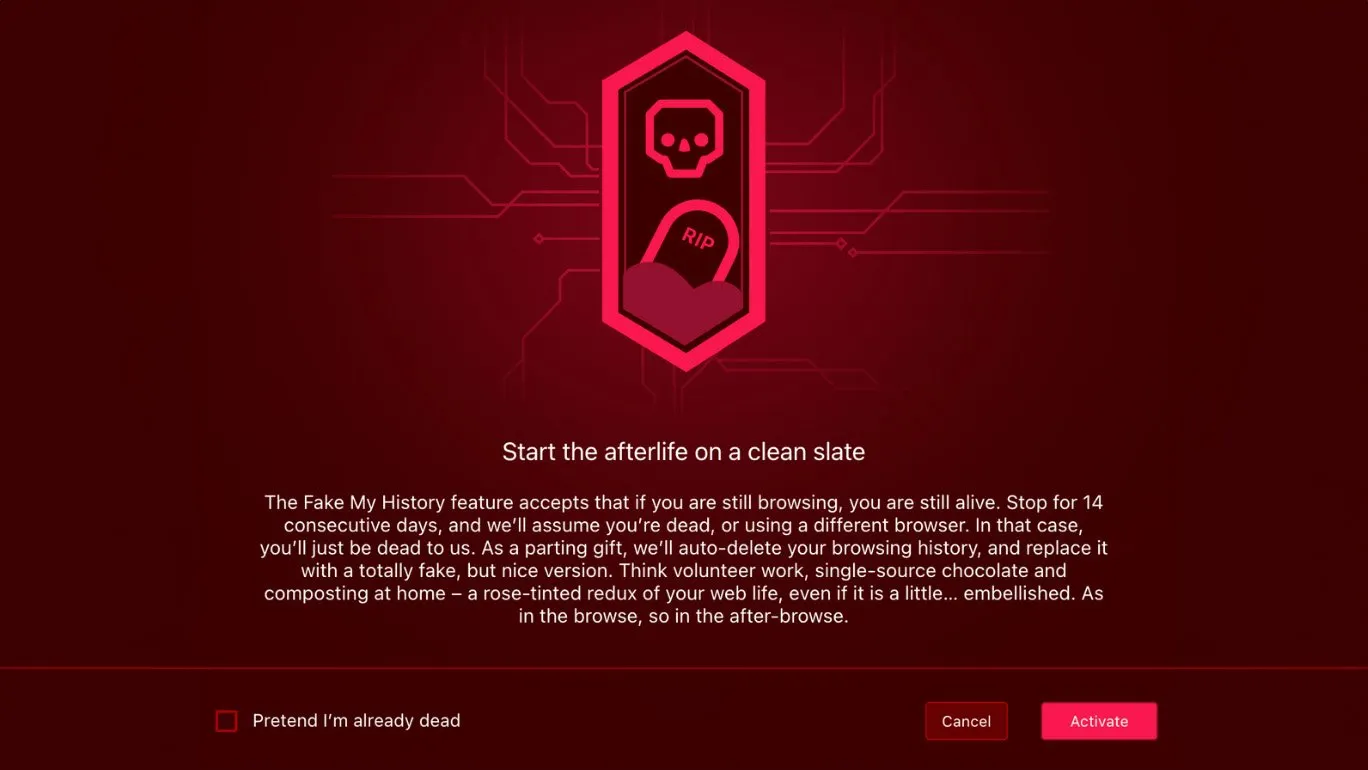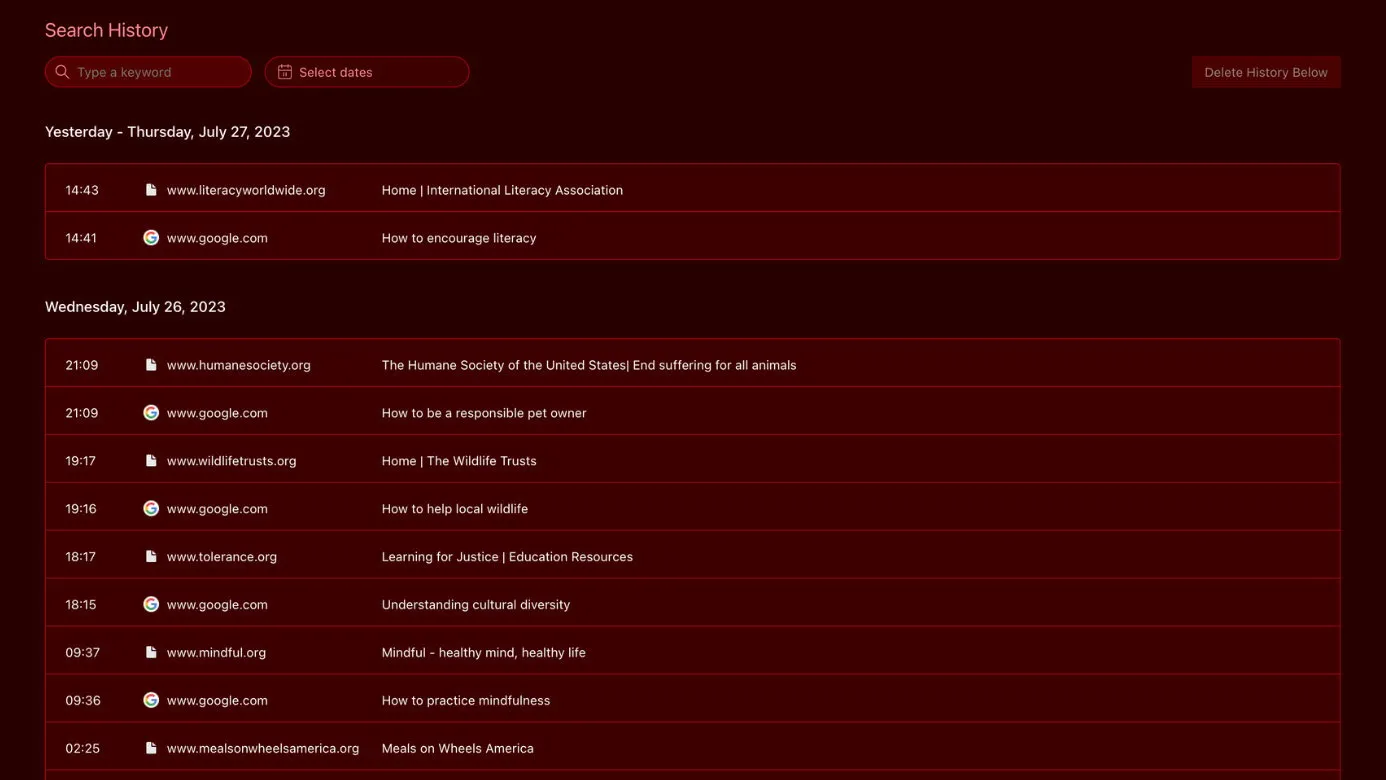Are you worried that your parents or significant other will discover your favorite websites after you pass away? Should you be? Opera, the internet browser company behind OperaGX, has you covered with a new “deadman switch” feature: “Fake My History.” When triggered, it uses AI to swap your real browser history to a set of more wholesome sites.
A “deadman switch,” also known as a trigger or kill switch, is a tool that requires users to fulfill steps to provide proof of life and control of the machine. A deadman switch can also take the form of information or messages that disappear after a set amount of time, as supported by privacy-centric messaging apps like Signal.

Once enabled, the “Fake My History” feature, available on OperaGX compatible systems, acts as a deadman switch and will auto-delete the browsing history and replace it with a fake “but nice” version.
Users can test the feature by checking the box next to “Pretend I’m already dead."

Once the user confirms they want to hide their history, OperaGX will generate random history links to replace the originals.

“With ‘Fake My History,’ we’re wiping the slate clean and replacing your scandalous digital shenanigans with a totally fake version of your browsing past,” OperaGX Product Director Maciej Kocemba said in a statement.
"In case your nosy partner, parent or roommate opens Opera GX and sneaks a posthumous peek at your history, they can marvel at your bogus yet impeccable online tastes and the charmingly fictional exploits that fill your digital past," the statement promises. "Bask in the glory of a phony yet plausibly sanitized browsing history that rivals the innocent escapades of the internet’s most virtuous users."
Tech companies are becoming increasingly attuned to both the privacy and social media preferences of the recently departed. Both Apple and Facebook provide a "Legacy Contact" feature to designate a trusted person to handle your accounts after you die or are incapacitated.
Crypto companies are following suit. Last year, web3 startup Sarcophagus raised $5.47 million towards the development of a crypto deadman switch that, if the user did not provide proof of livelihood, the content of the Sarcophagus, such as cryptocurrency, messages, and private keys, would automatically be sent to the address of their designated recipient.
Opera says the “Fake My History” feature will also work in less extreme cases, such as the user deciding to use a different internet browser.
Opera did not specify how the fake links are chosen.
Launched in 2019, OperaGX is an internet browser geared toward gamers and fans of anime. Embedded controls in OperaGX allow users to control the amount of RAM and processing power the browser uses, as well as a variety of gamer-focused features like built-in Twitch subscriptions, Discord messaging, and gaming news.
Last year, Opera also leapt headlong into the blockchain space by adding support for decentralized applications like Metamask and cryptocurrencies like Bitcoin, Solana, and Polygon through its Opera Crypto Browser.
In March, Opera introduced artificial intelligence to its Opera and Opera GX browsers. The “AI Prompts” feature added access to ChatGPT and ChatSonic directly into the Opera sidebar. Those with ChatGPT Plus subscriptions can use the more powerful GPT-4 and ChatGPT plugins.
Opera has not yet responded to Decrypt’s request for comment.





